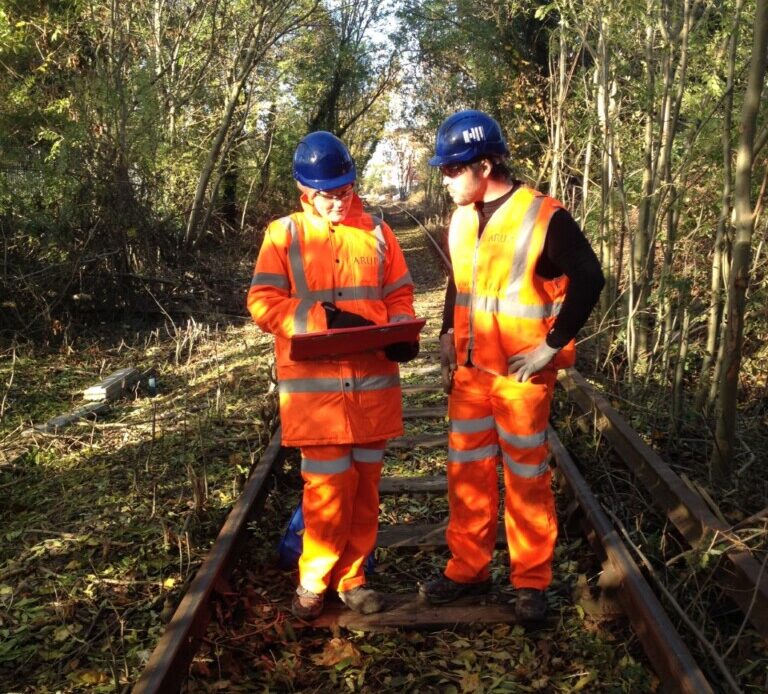To establish a positive Health, Safety & Wellbeing (HSW) culture and maintain Health and Safety excellence throughout the duration of the environmental and engineering surveys for Phase 2a of High Speed Two (HS2), Arup developed and implemented bespoke processes, procedures, and digital innovations on this project. Arup worked collaboratively with numerous sub-consultants as ‘one team’ to help foster a strong health, safety and wellbeing culture, drawing on the experience of health and safety professionals and business psychologists to make a dynamic team. The team supported a large integrated workforce accessible to many employees from multiple organisations.
Positive Health, Safety & Wellbeing culture and excellence was achieved through the following interventions:
- Exemplar collaboration and teamwork with all parties (client, Arup project teams, land access team, sub-consultants, other HS2 Phase 2acontractors).
- Attention to detail when developing mandatory safe systems of work and briefing these to site visiting teams.
- Developing, continually improving and conducting mandatory training modules (H&S inductions, Conflict Management, Asbestos Awareness training).
- Stipulating and enforcing mandatory training requirements for site visitors.
- Digital innovation (Fastfield application for recording mandatory Point of Work Risk Assessments).
- Regular health and safety communications (bulletins, alerts and general safety messages).
- Auditing activities.
- Mandatory reporting of all incidents and near misses. Incident investigations, route cause analysis of non-conformances; identifying, implementing, and communicating lessons learnt.
- A wellbeing survey and thematic analysis helped define and shape the future programme for the upcoming year.
- The wellbeing team delivered accessible, remote interventions designed around the principles of individual reflection, including workshops around ‘chronic uncertainty’, ‘the psychology of adjustment’ and wellbeing coaching. This approach provided a place for reflection and stillness amid lockdowns.
Three Winning Facts:
- The project’s ‘one team’ approach has enabled a strong collaborative safety culture across the project, which has resulted in low incident rates and a group that effectively engaged and supported one another.
- The development of a Digital innovation for recording on-site dynamic risk assessments. A major solution for site teams to use instead of using traditional paper forms.
- The bespoke wellbeing programme helped to foster a ‘lived’ wellbeing culture, supporting individual and team mental health and enhancing project performance.

